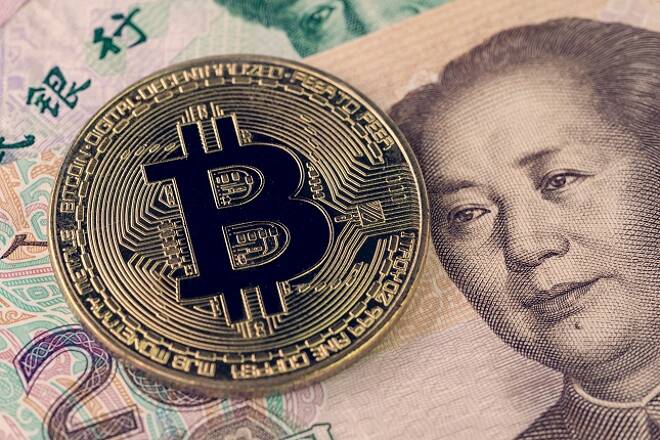Advertisement
Advertisement
PBoC Claims China’s Share in Bitcoin Transactions Dropped to 10%
By:
Traders have found ways to access cryptocurrencies despite the multiple crypto crackdowns and Bitcoin mining bans by the PBoC.
Key Insights
- PBoC claims that China’s share in the global Bitcoin (BTC) transactions dropped from over 90% to 10%.
- The official note also claims that all peer-to-peer online lending platforms have withdrawn from operations.
- The annual share of Bitcoin trading volume in digital yuan has dropped to near zero.
After multiple crackdowns, the People’s Bank of China (PBoC) claims that the nation’s share in global Bitcoin (BTC) transactions has drastically dropped from 90% to 10%.
China’s BTC Share Drops
In a recent report, China’s central bank claimed that the nation’s share in the global Bitcoin (BTC) transactions dropped by 80%. The Financial Stability Bureau of the PBoC released a comprehensive note on March 3, looking at the impact of the crypto crackdown on the nation’s financial markets.
The official note claimed that all P2P (peer-to-peer) online lending platforms have withdrawn from operations. Additionally, the outstanding loan balance has dropped from 1.2 trillion yuan to 490 billion yuan.
Aiming to further ‘curb the hype around cryptos,’ the statement from the bank noted:
“Effectively curbing the hype of domestic virtual currency transactions, the global proportion of Bitcoin transactions in China dropped rapidly from more than 90% to 10%. Severely cracked down on illegal financial activities such as disorderly handling of finance and driving without a license and launched a special campaign against illegal fund-raising crimes.”
The statement further said that 25,000 cases of illegal fund-raising have been investigated and dealt with by the government over the last five years.
PBoC’s Crypto Crackdowns
Notably, China’s first crackdown against cryptos came in 2013 when it prohibited banks from handling Bitcoin transactions.
In January 2017, the central bank again began investigating the activities of crypto exchanges to strengthen the weakening yuan and prevent money from leaving China illegally. The same forced the exchanges to shut down.
The final act didn’t show up till 2021 when the nation carried out multiple regulatory operations to eradicate Bitcoin mining from the country. By September 2021, it had deemed all crypto transactions illegal.
Data from Statista reveals that the annual share of Bitcoin trading volume in digital yuan has dropped to near zero by 2018, post a ban on cryptocurrency exchanges.
However, Bitcoin and most cryptos have a decentralized nature, making them difficult to ban. That said, many analysts have claimed that Chinese traders might’ve turned to foreign crypto exchanges via VPN to still access cryptos.
About the Author
Varuni Trivediauthor
A Journalism post-graduate with a keen interest in emerging markets across South East Asia, Varuni’s interest lies in the Blockchain technology. As a financial journalist, she covers metric and data-driven stories with a tinge of commentary, and strongly believes in HODLing.
Advertisement
